PREMIER ENDLER GUPPY ASSORTED FEMALE Randomly Selected Lovely Fish, Beautiful Endler Guppies, Perfect for Beginners Seeking Colorful and Thriving Freshwater Fish
£3.49 Original price was: £3.49.£2.91Current price is: £2.91.
Welcome these stunning PREMIER ENDLER GUPPY ASSORTED FEMALE fish into your aquarium. With vibrant colors and graceful movements, these peaceful companions thrive in community settings. Ideal for beginners, each fish is selected for beauty and personality, enhancing your aquatic environment.
Out of stock
Species Introduction
The Premier Endler Guppy, scientifically known as Poecilia reticulata, is a captivating freshwater fish that has gained immense popularity among aquarium enthusiasts. Originating from the lush waters of Venezuela, these vibrant creatures are a part of the Poeciliidae family, which also includes other well-known species such as the common guppy. Endler guppies are particularly celebrated for their striking colors and lively personalities, making them an excellent choice for both novice and experienced aquarists. Their natural habitat consists of shallow streams and ponds, where they thrive in warm, well-vegetated environments. In aquariums, they can exhibit a range of colors, from bright oranges and reds to deep blues and greens, making them a delightful addition to any aquatic setup.
Care Requirements Dashboard
Essential Care Guide for Your Premier Endler Guppy Assorted Female
| Optimal Living Conditions | |
|---|---|
| Water Temperature | 24-27°C (75-81°F) |
| pH Level | 6.5-7.5 |
| Water Hardness | 4-12 dKH |
| Minimum Tank Size | 80L (20 gal) |
| Salinity | Freshwater |
| Care Level | Beginner Friendly |
✓ Care Level: Easy
Tank Size: Minimum 10 gallons
Water Parameters: pH 6.5-8.0, Temperature 22-28°C (72-82°F)
Compatibility: Peaceful community fish
Providing a suitable environment for your Endler guppies is crucial for their health and happiness. A minimum tank size of 10 gallons is recommended to allow for swimming space and to maintain stable water conditions. The water parameters should be monitored regularly, with a pH level ranging between 6.5 to 8.0, and a temperature maintained between 22-28°C (72-82°F). These fish are known for their flourishing nature, making them suitable for beginners who are just starting their aquarium journey. Regular water changes and good filtration will help keep the water quality high, which is essential for the well-being of your aquatic companions.
Natural Behavior & Temperament
Endler guppies are known for their active and playful nature. They are social creatures that thrive in groups, often displaying fascinating swimming patterns and behaviors. In a well-maintained aquarium, you will observe them darting around, exploring their environment, and interacting with each other. Their peaceful temperament makes them ideal for community tanks, as they coexist harmoniously with other non-aggressive species. However, it is important to avoid housing them with larger, predatory fish that may view them as prey. When kept in groups, their vibrant colors become even more pronounced, creating a stunning visual display that enhances the beauty of your aquarium.
Tank Setup Guide
Creating an ideal environment for your Premier Endler guppies involves careful consideration of tank setup. Begin with a spacious aquarium of at least 10 gallons, as this provides ample swimming space and helps maintain stable water conditions. Use a fine substrate, such as sand or small gravel, which mimics their natural habitat and allows for easy planting of aquatic vegetation. Incorporating live plants not only enhances the aesthetic appeal of your aquarium but also provides hiding spots and breeding grounds for your fish friends. Additionally, consider adding decorations like rocks and driftwood to create a more natural environment. Ensure that the tank is well-cycled before introducing your Endler guppies, as this will help establish beneficial bacteria that aid in maintaining water quality.
Water Quality Management
✓ Good Water Quality is Essential
pH: 6.5-8.0
Temperature: 22-28°C (72-82°F)
Hardness: 5-20 dGH
Maintaining optimal water quality is vital for the health and longevity of your Endler guppies. Regular testing of water parameters, including pH, temperature, and hardness, is essential. Aim for a pH level between 6.5 and 8.0, with a temperature range of 22-28°C (72-82°F). The hardness should be maintained between 5-20 dGH, which provides a suitable environment for these freshwater fish. Frequent water changes, approximately 20-30% weekly, will help keep the water clean and free of toxins. Additionally, utilizing a high-quality filtration system will aid in maintaining water clarity and quality, ensuring a healthy habitat for your aquatic companions.
Feeding & Nutrition
✓ Balanced Diet for Optimal Health
Diet: High-quality flakes, pellets, and live foods
Feeding Schedule: 2-3 times daily
Feeding your Endler guppies a balanced diet is crucial for their growth and overall health. They thrive on a varied diet that includes high-quality flakes, pellets, and occasional live or frozen foods such as brine shrimp and daphnia. It is recommended to feed them 2-3 times daily, offering only what they can consume within a few minutes to prevent overfeeding and maintain water quality. A well-fed Endler guppy will exhibit vibrant colors and active behavior, contributing to the overall beauty of your aquarium. Additionally, providing a diet rich in plant matter can enhance their health and vitality, as these fish are omnivores and benefit from a diverse nutritional intake.
Compatibility Guide
✓ Peaceful Community Fish
Compatible Tank Mates: Tetras, Corydoras, Rasboras, other peaceful species
Avoid: Larger predatory fish
Endler guppies are known for their peaceful nature, making them excellent additions to community tanks. They thrive in the company of other small, non-aggressive fish such as tetras, corydoras, and rasboras. When selecting tank mates, it is essential to avoid larger predatory fish that may view them as prey. Keeping a harmonious community tank not only enhances the beauty of your aquarium but also promotes a stress-free environment for all inhabitants. It is advisable to introduce compatible species gradually and monitor their interactions to ensure a balanced and peaceful community.
Health & Wellness
✓ Signs of a Healthy Fish
Common Issues: Ich, fin rot, dropsy
Prevention: Maintain water quality, quarantine new fish
Monitoring the health and wellness of your Endler guppies is essential for their longevity. Common health issues include ich, fin rot, and dropsy. Signs of a healthy fish include vibrant colors, active swimming, and clear eyes. To prevent health issues, maintaining high water quality is paramount. Regularly test your water parameters and perform routine water changes. Additionally, quarantining new fish before introducing them to your main tank can help prevent the spread of diseases. If you notice any signs of illness, it is crucial to act quickly and consult with an aquarium professional for appropriate treatment options.
Breeding Information
✓ Breeding Made Easy
Reproduction: Livebearers, fry care
Spawning Conditions: Separate breeding tank recommended
Breeding Endler guppies can be a rewarding experience for aquarists. These fish are livebearers, meaning they give birth to free-swimming fry rather than laying eggs. To encourage breeding, it is advisable to provide a separate breeding tank with plenty of hiding spots and plants. Once the female is pregnant, she will give birth to 20-50 fry every 3-4 weeks. After birth, it is essential to provide the fry with fine food, such as powdered flakes or infusoria, until they are large enough to consume regular fish food. Ensure that the breeding tank is well-maintained, as good water quality is crucial for the health of both the mother and the fry.
Acclimation Process
Introducing your Endler guppies to their new home requires a careful acclimation process to minimize stress and ensure a smooth transition. Begin by floating the sealed bag containing the fish in the aquarium for about 15-20 minutes. This allows the water temperature in the bag to equalize with that of the tank. After this, gradually add small amounts of tank water to the bag every 5 minutes for about 30 minutes. This process helps the fish adjust to the water parameters of their new environment. Once acclimated, gently release the guppies into the tank using a net to avoid introducing any bag water, which may contain harmful substances. Monitor their behavior closely for the first few days to ensure they are adapting well.
Long-term Care
✓ Lifespan and Growth Expectations
Lifespan: 2-3 years
Growth Rate: Fast-growing species
Endler guppies typically have a lifespan of 2-3 years when provided with optimal care. They are fast-growing fish, reaching their maximum length of about 6 cm (2.4 inches) within a few months. Regular monitoring of their health, water quality, and diet will contribute to their longevity and vibrant appearance. As they mature, you may notice changes in their coloration and patterns, which can be quite stunning. To ensure a thriving environment, continue to provide a balanced diet, maintain good water quality, and keep the tank clean. Regularly assess their living conditions and make adjustments as necessary to promote a healthy and happy life for your Endler guppies.
Natural Habitat Recreation
Recreating the natural habitat of Endler guppies in your aquarium can greatly enhance their well-being. In the wild, these fish inhabit shallow, densely vegetated waters, so incorporating live plants into your tank is essential. Use a variety of aquatic plants, such as Java moss, Anubias, and floating plants, to provide cover and breeding areas. Additionally, consider adding natural elements like driftwood and rocks to mimic their natural environment. Ensure that the tank is well-lit to promote plant growth, as this will not only benefit the fish but also contribute to a healthy ecosystem within the aquarium. By replicating their natural habitat, you will create a more comfortable and enriching environment for your Endler guppies.
Seasonal Care Adjustments
✓ Adjustments for Optimal Conditions
Summer: Monitor temperature closely
Winter: Consider heating requirements
As seasons change, so do the needs of your Endler guppies. During the summer months, it is important to monitor the water temperature closely, as higher temperatures can lead to stress and health issues. Ensure that the tank is not exposed to direct sunlight, which can cause overheating. In contrast, during the winter, you may need to consider heating options to maintain a stable temperature within the optimal range of 22-28°C (72-82°F). Regularly check the water parameters and make necessary adjustments to ensure a comfortable environment for your fish friends throughout the year.
Expert Tips
✓ Professional Advice for Enthusiasts
Tip 1: Use a high-quality water conditioner
Tip 2: Regularly clean the substrate
For those looking to provide the best care for their Endler guppies, consider using a high-quality water conditioner to eliminate harmful chemicals and toxins from tap water. This will create a safer environment for your fish friends. Additionally, regularly cleaning the substrate will help prevent the buildup of waste and uneaten food, which can lead to poor water quality. A gravel vacuum can be an effective tool for this task, ensuring that your aquarium remains a healthy habitat for your aquatic companions. By following these expert tips, you can enhance the well-being of your Endler guppies and enjoy their vibrant presence in your aquarium.
Troubleshooting
✓ Common Problems and Solutions
Issue: Cloudy water
Solution: Check filtration and perform water changes
If you encounter common issues such as cloudy water, it is important to identify the underlying cause and take appropriate action. Cloudy water can result from inadequate filtration or excessive waste buildup. Check your filtration system to ensure it is functioning properly and consider performing a water change to restore clarity. Additionally, assess your feeding practices to prevent overfeeding, which can contribute to poor water quality. By addressing these issues promptly, you can maintain a healthy and visually appealing aquarium for your Endler guppies.
Scientific Background
The Endler guppy, or Poecilia reticulata, is a fascinating species that has garnered attention in the scientific community for its unique characteristics and behaviors. As a member of the Poeciliidae family, they share a close relationship with other guppy species, but exhibit distinct traits that set them apart. Research has shown that Endler guppies are particularly adaptable, thriving in varying environmental conditions. Their vibrant colors are not only a visual delight but also play a role in their reproductive success, as males display brighter hues to attract females. Understanding the scientific background of these fish can enhance your appreciation for their beauty and complexity.
Advanced Care Techniques
✓ Expert-Level Husbandry Methods
Technique 1: Use a breeding box for fry
Technique 2: Implement a varied diet for color enhancement
For advanced aquarists looking to take their Endler guppy care to the next level, consider implementing specialized techniques. Using a breeding box can help protect fry from being eaten by adult fish, providing a safe space for them to grow until they are large enough to join the main tank. Additionally, offering a varied diet that includes high-quality pellets, flakes, and live foods can significantly enhance the coloration and vitality of your guppies. By adopting these advanced care techniques, you can ensure a thriving environment for your Endler guppies and enjoy their beauty for years to come.
Water Quality Parameters
Optimal Range
24-27°C
6.5-7.5
0 ppm
Caution Zone
22-24°C or 27-29°C
6.0-6.5 or 7.5-8.0
0.25-0.5 ppm
Danger Zone
<22°C or >29°C
<6.0 or >8.0
>0.5 ppm
Monitoring Tip: Test water parameters weekly and perform regular water changes to maintain optimal conditions for your aquatic friends!
Frequently Asked Questions
Q: What tank size is required for the Premier Endler Guppy?
The Premier Endler Guppy thrives in a minimum tank size of 30 litres, which provides ample swimming space and allows for a stable environment. These fish are social creatures and do best in groups, so consider keeping at least five to six individuals. A larger tank will not only accommodate more fish but also help maintain better water quality. Additionally, ensure the tank is well-filtered and has plenty of plants and hiding spots to mimic their natural habitat, promoting their overall well-being.
✓ Expert Tip
Regular water changes of 10-20% weekly can help maintain optimal water quality, which is crucial for the health of your Endler Guppies.
Q: What water parameters do Endler Guppies require?
Endler Guppies prefer slightly alkaline water with a pH range of 7.0 to 8.0. The water hardness should ideally be between 10-30 dGH. Maintaining a stable temperature between 22°C to 28°C is also essential for their health. It’s advisable to use a reliable water testing kit to monitor these parameters regularly. Sudden fluctuations can lead to stress and health issues, so gradual adjustments are recommended. Furthermore, ensure that ammonia and nitrite levels remain at zero for optimal fish health.
✓ Expert Tip
Utilising a high-quality filtration system can help maintain stable water conditions, ensuring a healthy environment for your aquatic companions.
Q: How often should I feed Endler Guppies?
Endler Guppies should be fed two to three times a day, offering only as much food as they can consume within a few minutes. A varied diet is crucial for their health; consider high-quality flake food, micro-pellets, and occasional live or frozen foods like brine shrimp or daphnia. This variety not only enhances their colouration but also supports their overall health and vitality. Overfeeding can lead to water quality issues, so it’s essential to monitor portion sizes carefully.
✓ Expert Tip
Consider using feeding rings to minimise food wastage and ensure all fish get their fair share of the meal.
Q: What are the best tank mates for Endler Guppies?
Endler Guppies are generally peaceful and can coexist with a variety of other fish. Suitable tank mates include other small community fish such as neon tetras, rasboras, and other guppy varieties. Avoid aggressive species, as they may stress your guppies or even harm them. It is also advisable to steer clear of larger fish that may view guppies as food. Ensure that all species share similar water parameter requirements to create a harmonious environment.
✓ Expert Tip
Observe interactions closely when introducing new tank mates, and be prepared to rehome any fish that display aggression.
Q: How do I properly acclimatise Endler Guppies to my aquarium?
Acclimatisation is vital for the health of your Endler Guppies. Start by floating the sealed bag in your aquarium for about 15-20 minutes to equalise the temperature. After that, gradually introduce small amounts of aquarium water into the bag every 5-10 minutes for around an hour. This process helps the fish adjust to the water chemistry of their new home. Finally, gently net the guppies into the tank, avoiding the water from the bag to prevent introducing any contaminants.
✓ Expert Tip
Always ensure your aquarium is fully cycled before introducing new fish to avoid stress and potential health issues.
Q: What are the signs of healthy Endler Guppies?
Healthy Endler Guppies exhibit bright colours, clear eyes, and active swimming behaviour. They should be social and interact well with tank mates. Look out for signs of stress or illness, such as lethargy, faded colours, or unusual swimming patterns. Additionally, healthy guppies will have a robust appetite and display normal feeding behaviour. Regular observation is key to spotting any changes in behaviour that may indicate health issues early on.
✓ Expert Tip
Maintain a routine for monitoring your fish, as early detection of issues can significantly improve treatment outcomes.
Q: How do I successfully breed Endler Guppies?
Breeding Endler Guppies is relatively straightforward, as they are livebearers. To encourage breeding, maintain a ratio of one male to two or three females. Provide plenty of hiding spots using plants or decorations, as this will help protect fry from being eaten. The gestation period is around 3-4 weeks, after which females will give birth to live fry. Ensure that the fry have access to finely crushed food or specialised fry food for optimal growth.
✓ Expert Tip
Consider providing a separate breeding tank to ensure the fry have a safe environment to grow without the risk of predation from adult fish.
Q: What temperature should I maintain for Endler Guppies?
Endler Guppies thrive in a temperature range of 22°C to 28°C. Maintaining a stable temperature is crucial, as fluctuations can cause stress and health problems. Use a reliable aquarium heater and thermometer to monitor the temperature accurately. It is advisable to keep the temperature consistent, particularly during the breeding season, as warmer temperatures can encourage breeding activity. Regular checks will help ensure your aquatic companions remain comfortable.
✓ Expert Tip
Avoid placing the tank in direct sunlight, as this can cause overheating and promote algae growth.
Q: How long do Endler Guppies typically live in captivity?
In captivity, Endler Guppies can live for 2 to 3 years, provided they are cared for in a suitable environment. Factors such as water quality, diet, and tank mates significantly influence their lifespan. Regular maintenance and monitoring of water parameters can help prevent stress and illness, thereby extending their life. Keeping them in a well-planted tank with plenty of space to swim will also contribute to their overall happiness and longevity.
✓ Expert Tip
Regular health checks and prompt treatment of any illnesses can significantly enhance your guppies’ quality of life.
Q: What type of substrate is most suitable for Endler Guppies?
Endler Guppies prefer a fine substrate that allows them to forage naturally. Sand or small gravel is an excellent choice, as it mimics their natural habitat and provides a comfortable environment for bottom-dwelling organisms. Additionally, a darker substrate can enhance their vibrant colours, making them more visually appealing. Ensure that the substrate is free from sharp edges to prevent injury to your fish friends.
✓ Expert Tip
Incorporating live plants can help improve water quality and provide additional hiding spots for your guppies.
Q: What behavioural patterns should I expect from Endler Guppies?
Endler Guppies are generally active and social fish, often seen swimming in groups. They exhibit playful behaviour, frequently darting about the tank and exploring their environment. Males are known for their vibrant displays during courtship, showcasing their colours to attract females. Additionally, they may engage in gentle chasing, which is part of their natural behaviour. Observing these patterns can be quite delightful, adding to the enjoyment of being an aquarium keeper.
✓ Expert Tip
Providing plenty of swimming space and hiding spots will help your guppies feel secure and promote natural behaviours.
Q: How can I prevent common diseases in Endler Guppies?
Preventing diseases in Endler Guppies begins with maintaining excellent water quality. Regular water changes and monitoring parameters are crucial. Additionally, avoid overcrowding to reduce stress and competition for resources. Quarantining new fish before introducing them to the main tank can also prevent the spread of diseases. Observe your fish for any unusual behaviour, such as loss of appetite or abnormal swimming patterns, as these can be early signs of illness.
✓ Expert Tip
Consider adding aquarium salt in moderation to promote gill health and help prevent common ailments.
Q: What lighting conditions do Endler Guppies prefer?
Endler Guppies thrive in moderate lighting conditions. A light cycle of 10-12 hours per day is ideal, simulating their natural habitat. Too much direct sunlight can lead to algae growth, so consider using a timer to maintain consistency. Additionally, providing shaded areas with plants or decorations can help them feel secure and reduce stress. Proper lighting not only benefits the fish but also enhances the overall aesthetics of the aquarium.
✓ Expert Tip
Adjust the lighting intensity based on the presence of live plants, ensuring they receive adequate light without overwhelming the fish.
Q: How do I recognise stress in Endler Guppies?
Recognising stress in Endler Guppies involves observing their behaviour and physical condition. Signs of stress may include hiding excessively, rapid gill movement, and a loss of colour vibrancy. Additionally, erratic swimming patterns or lethargy can indicate distress. It is essential to monitor their environment closely; changes in tank conditions, such as water quality or temperature fluctuations, can lead to stress. Promptly addressing any issues will help maintain their health and well-being.
✓ Expert Tip
Creating a calm environment with plenty of hiding spots can help alleviate stress and promote a healthier atmosphere for your guppies.
Q: What natural habitat conditions should I replicate for Endler Guppies?
Endler Guppies are native to freshwater streams and ponds in Venezuela, which feature dense vegetation and slow-moving water. To replicate their natural habitat, include plenty of live plants, such as Java moss or hornwort, along with smooth rocks and driftwood for hiding spots. Maintaining moderate water flow and ensuring a well-planted environment will help them feel secure. Additionally, mimic the soft, slightly alkaline water conditions found in their native habitat for optimal health.
✓ Expert Tip
Incorporating a variety of plants not only enhances the beauty of your aquarium but also provides essential cover and breeding ground for your guppies.


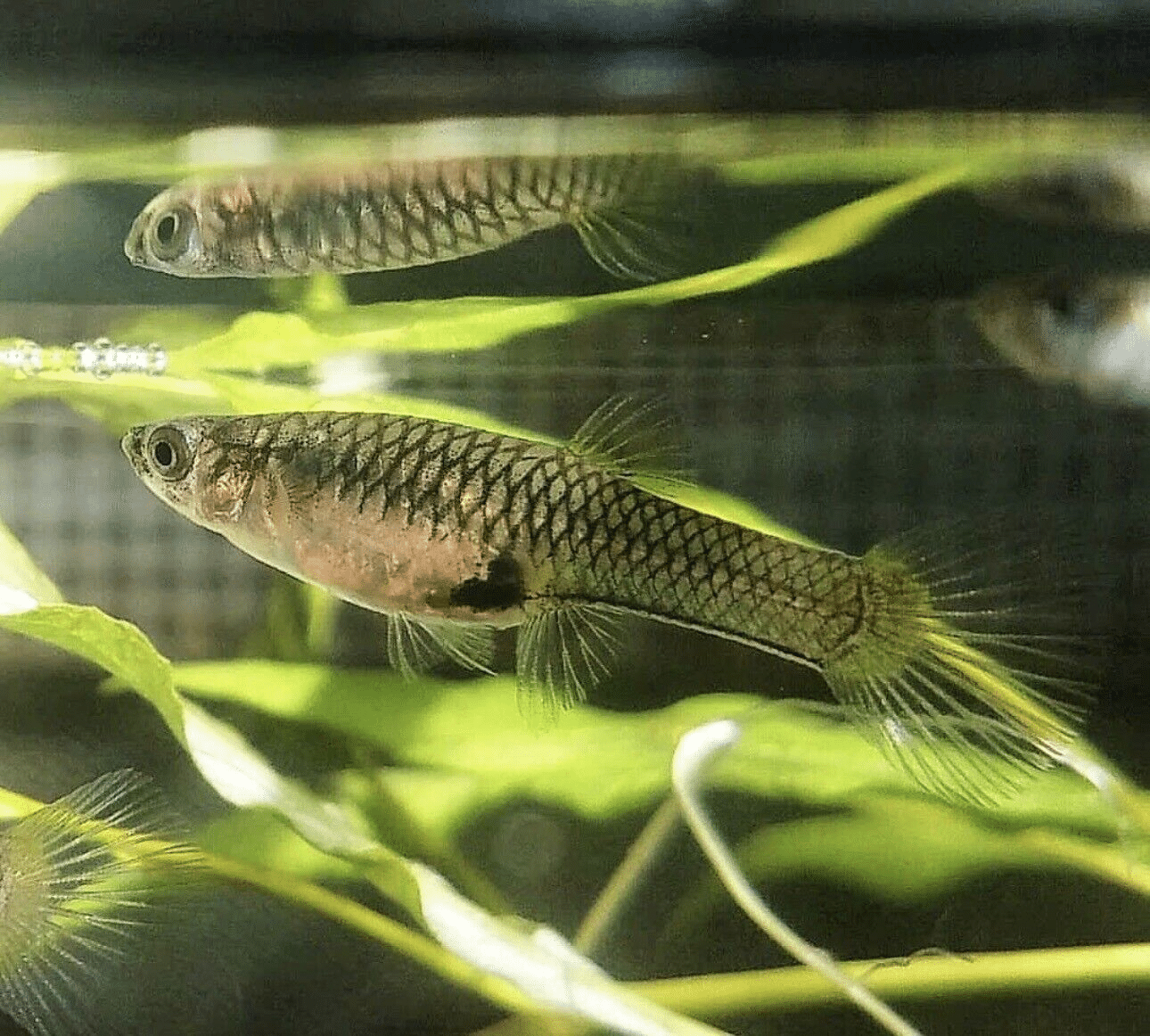
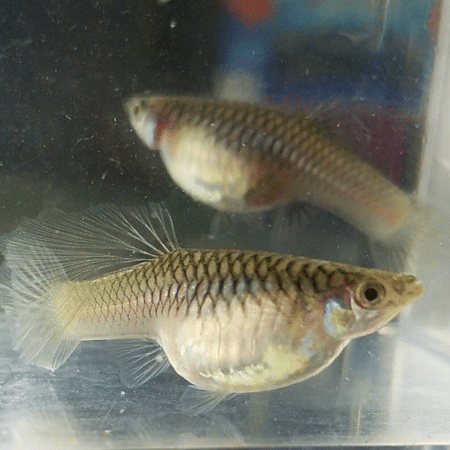
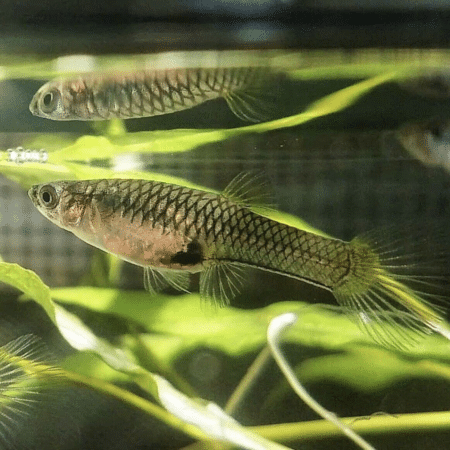
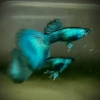
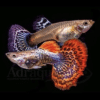


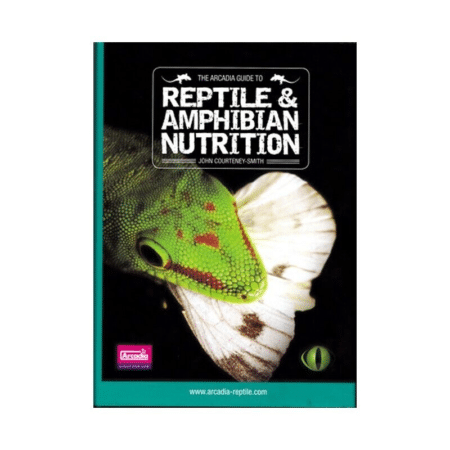
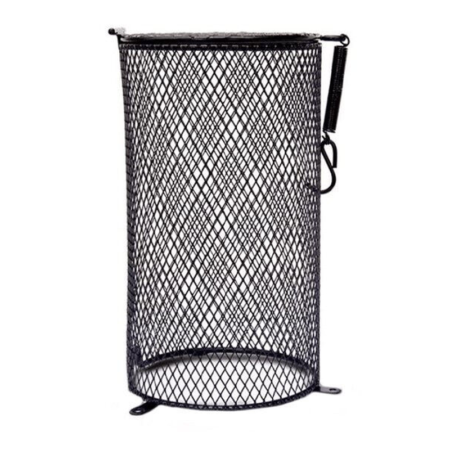
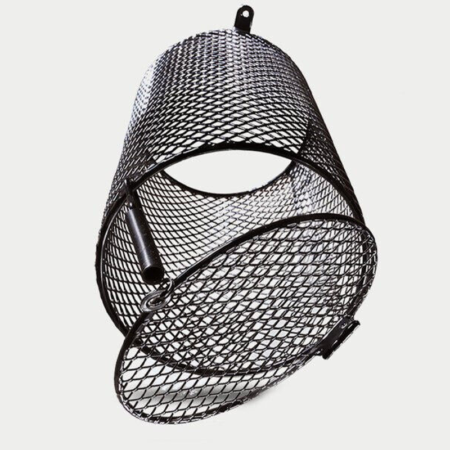
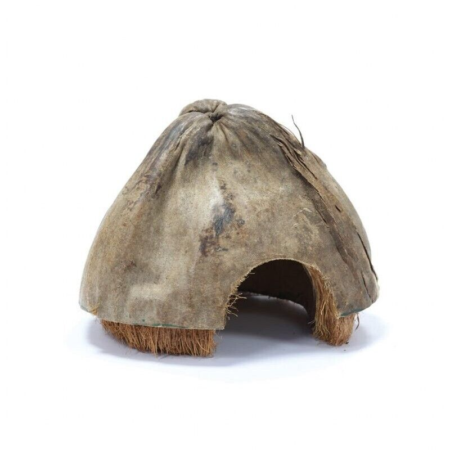

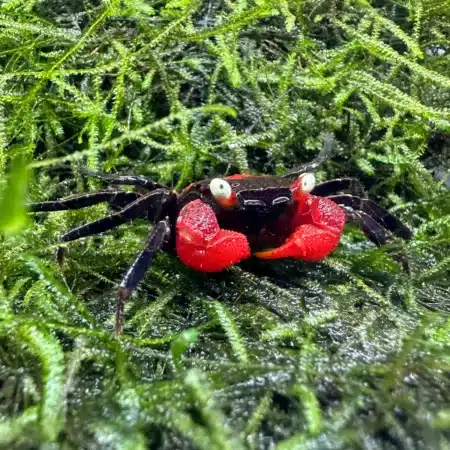
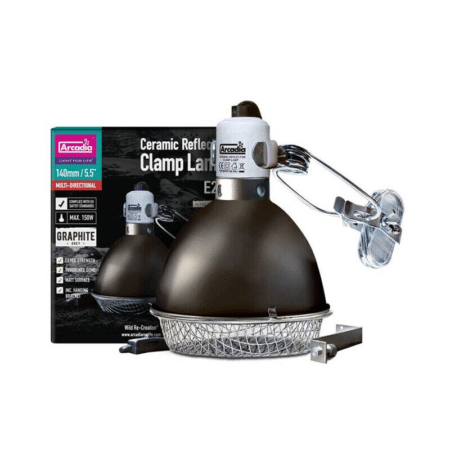
Emily Carter (verified owner) –
I’ve been an aquarium enthusiast for over five years, and I recently ordered the Premier Endler Guppy Assorted Female fish. I couldn’t be more thrilled! After just a week in my 20-gallon tank, these lovely fish have acclimated beautifully. Their vibrant colors and lively personalities truly bring my aquarium to life. The selection was pleasantly surprising; I received a mix of different patterns, each one more charming than the last.
What impressed me most was the health of these guppies. They arrived promptly and were clearly well-cared for. Compared to other providers, the quality here is exceptional! I’ve had experiences with fish that suffered from stress upon arrival, but these girls swam out confidently and began exploring right away. Just a small note: I did notice one fish had a slight fin tear, but it healed quickly in the right environment.
If you’re looking to enhance your aquarium with hardy and beautiful fish, I highly recommend these Endler guppies! They are perfect for both beginner and experienced aquarists. Plus, they’re a joy to watch as they thrive in a well-maintained tank. I’ll definitely be purchasing more in the future!